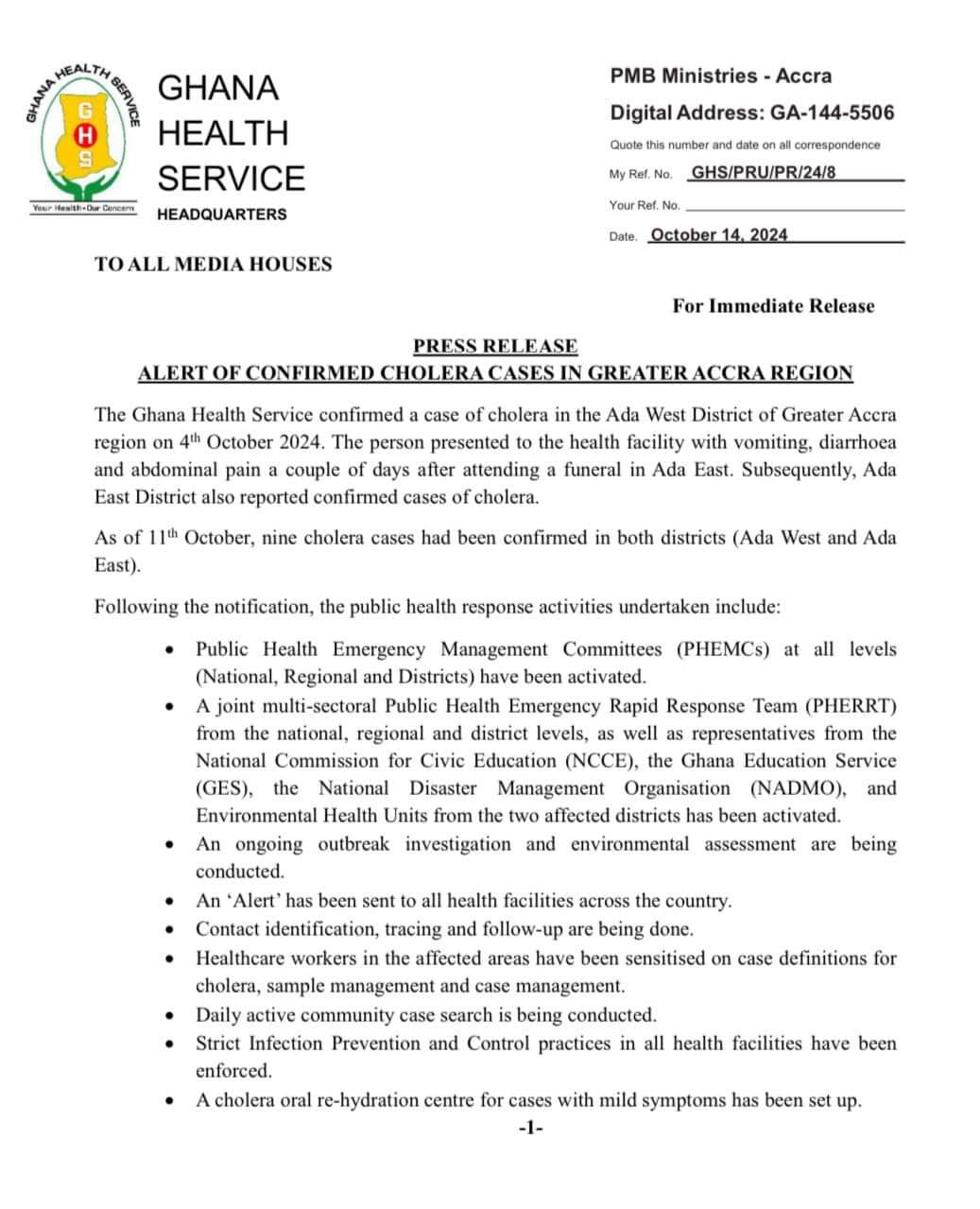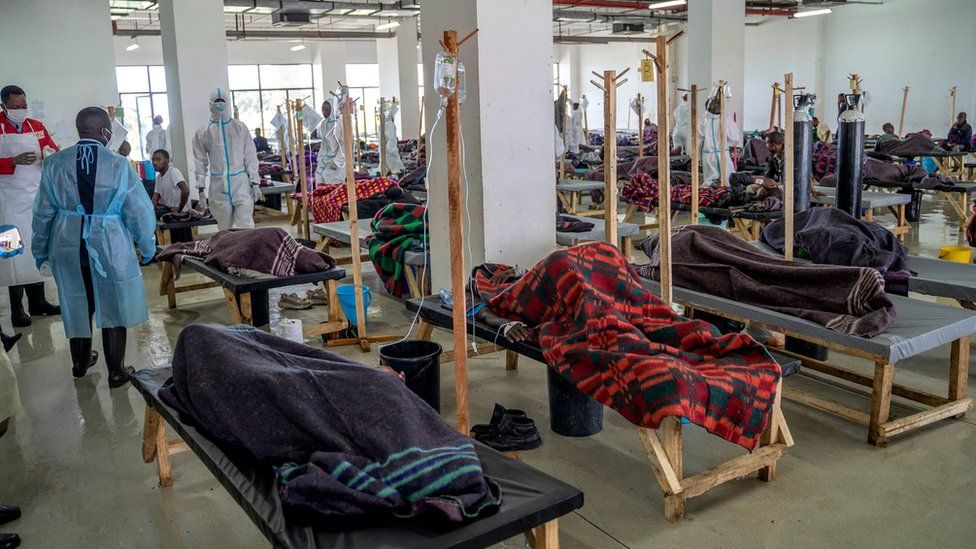The Ghana Health Service (GHS) has confirmed nine fresh cholera cases in the Ada West District of the Greater Accra Region.
According to GHS, the first case was recorded on Friday, October 4, 2024.
The first patient, who experienced vomiting and diarrhoea after attending a funeral in Ada East, prompted an immediate investigation by health authorities.
Additional cases were identified in the Ada East District following the initial case. As of October 11, 2024, nine cholera cases had been confirmed in both Ada West and Ada East districts.
GHS, in a statement on Monday, October 14, said, “The Ghana Health Service confirmed a case of cholera in the Ada West District of Greater Accra region on 4th October 2024. The person presented to the health facility with vomiting, diarrhoea and abdominal pain a couple of days after attending a funeral in Ada East.
“Subsequently, Ada East District also reported confirmed cases of cholera. As of 11th October, nine cholera cases had been confirmed in both districts (Ada West and Ada East)”.
The GHS assured that it has swiftly initiated some response activities, including contact identification, tracing and follow-up, and formation of committees at different levels.
“Following the notification, the public health response activities undertaken include: • Public Health Emergency Management Committees (PHEMCs) at all levels (National, Regional and Districts) have been activated.
“A joint multi-sectoral Public Health Emergency Rapid Response Team (PHERRT) from the national, regional and district levels, as well as representatives from the National Commission for Civic Education (NCCE), the Ghana Education Service (GES), the National Disaster Management Organisation (NADMO), and Environmental Health Units from the two affected districts, has been activated”.
READ ALSO: Millions at risk from cholera due to lack of clean water – Report
The Ministry of Health and the Ghana Health Service, in collaboration with other relevant stakeholders, have assured the public of their continuous effort to swiftly detect and respond early to public health emergencies.
Read the full statement below.

















